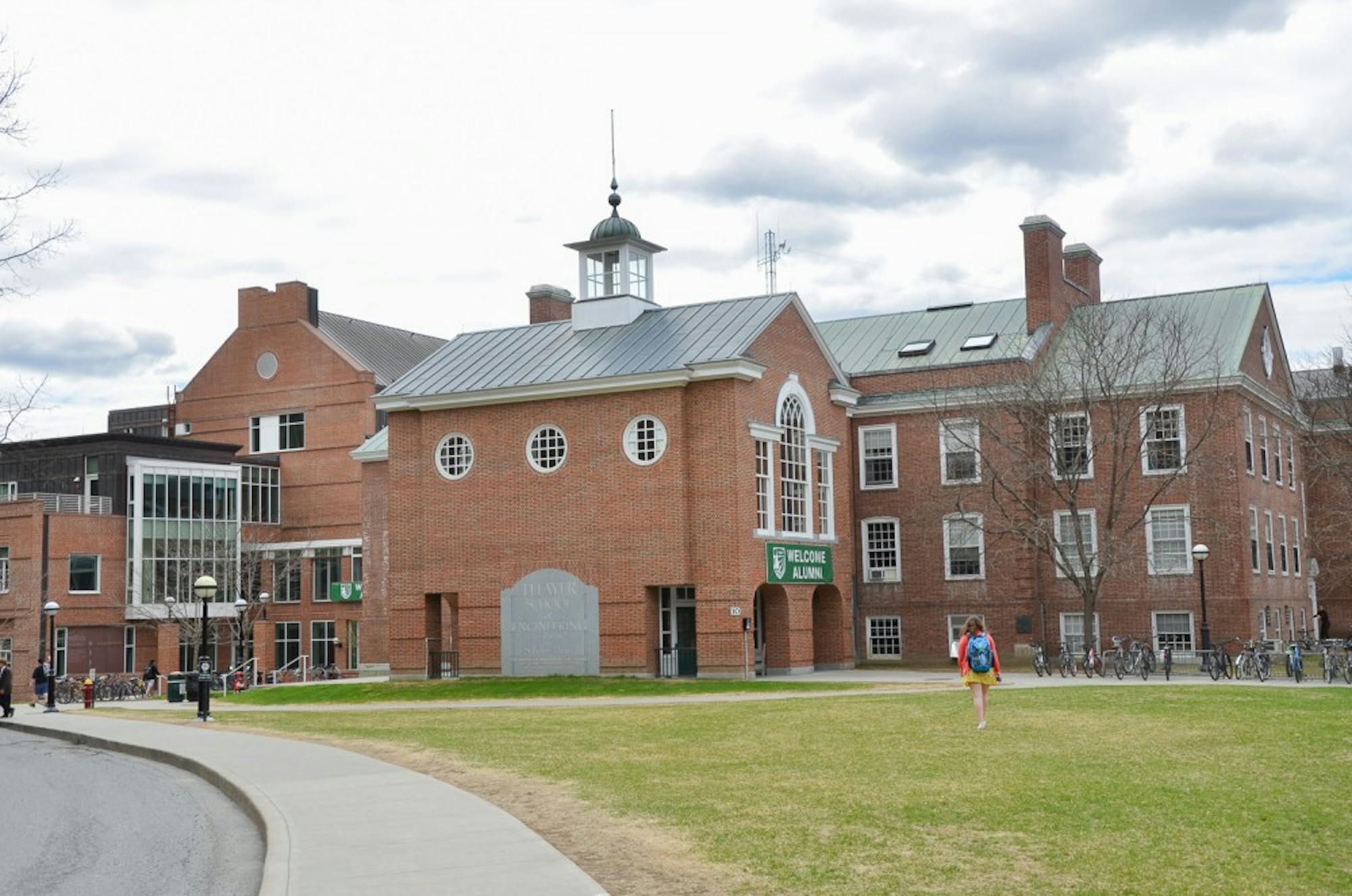Baker-Berry Library will be silent. Few people will be heard chatting in the halls of Fahey-McLane residential hall. But the machine shop at the Thayer School of Engineering will be whirring between Dec. 7 through 10, as engineering students learn to engrave with state-of-the-art laser cutters.
Some students will spend time in Hanover during winter break learning new skills at the Thayer School of Engineering, which will offer several free, skills-based courses during the first few weeks of December to both undergraduate and graduate engineering students.
The four courses range in length from a few hours to four days. Thayer students hoping to knock off a few requirements out-of-term will be disappointed, however, as the courses will not be worth any credits and will not appear on students’ transcripts, Thayer assistant dean of academic and student affairs Holly Wilkinson said.
One course will analyze small engines. Another will teach students how to use lasers on several different materials. A third course, titled the “Internet of Things,” will teach students to program tiny computers, and a final class is an English workshop that will teach technical writing skills, with an emphasis on grammatical details that are often difficult for non-native speakers.
They have been designed to supplement students’ academic experiences and cater to the interests that students cannot pursue given the truncated nature of the academic year, Wilkinson said. The short courses are not only geared toward the engineering community, despite the fact that they are all taught by engineering professors, he said.
Engineering professor Charles Sullivan, who is teaching the English course, said that he will direct his course toward an audience of the international students who do not choose to return home during winter break, frequently because of the expense. That is one reason the courses will not cost tuition, he said.
Enrollment for the courses is capped at 45 students, with sections ranging from six to 15.
“We didn’t know what to expect this first year so we kept it small, hoping that it would fill, and it looks like by all means that courses will fill,” Wilkinson said.
Thayer dean Joseph Helble, who recognized that many students remain on campus after fall term, had the idea for the program, Wilkinson said.
Helble was not available for comment by press time.
“The dean was responding to requests from folks who are on campus during this long interim break that we have that wanted to know how they could make productive use of their time here and indulge hobby interests,” machine shop manager and instructor Kevin Baron said.
Thayer professors are under no illusions — three or four days is not enough time to grasp the inner workings of an engine fully or become a programmer destined for Silicon Valley. Baron agreed that there are limits to the curriculum imposed by the short duration of the courses, but he said that the students will nonetheless walk away with a better understanding of and deeper appreciation for difficult concepts.
“Of course, nobody is going to come away from this as a mechanic, but they are going to be able to identify the essential components that make a four-stroke engine work,” he said. “Almost all of us reach a point in our lives where we find it enjoyable to spend a day with an expert on any topic.”
Baron said that Jason Downs, a faculty member at Thayer’s machine shop, has determined that small engines course is best taught “in a single sitting.”
Thayer’s new initiative accompanies the College’s shift to emphasize experiential learning, Baron said, noting that the short courses will allow for academic liberty and individualized attention.
“We have more time to address smaller classes on activities of interest and to learn something in a low-pressure environment,” he said.
Cora Phanord ’16, an engineering and computer science major does not know if she will be in Hanover over winter break. But she agreed with Baron, noting that the intensity of an academic term can sometimes force students to prioritize finishing their assignments rather than embarking on intellectual discoveries.
“So many times because a class is stressful, and you just need to do well in it. You focus more on just getting the work done as opposed to learning,” she said. “This would be an environment where I could learn just for the sake of learning.”




